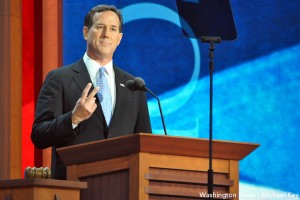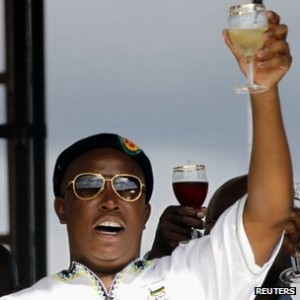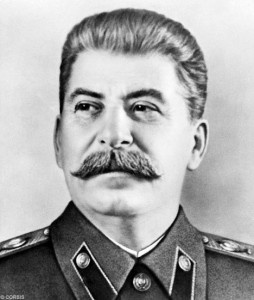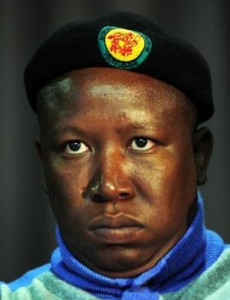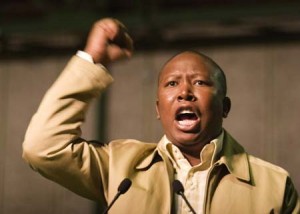Warning: this article contains personal opinions, trigger points, sweeping generalisations, and subjective conclusions based on anecdotal evidence. It is the start of a discussion, not the final word. Proceed at your own risk.
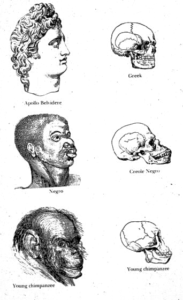 I – Growing up Racist
I – Growing up Racist
It’s taken me a long time to admit it, but I am a racist. Not a proud one, mind you. More like a reluctant racist who has finally decided to come clean so that I may better understand this shameful part of my psyche and thereby go into remission.
Firstly, a little bit about me.
I was born in Johannesburg and grew up in the 1980s, a time when South Africa was deep in the throes of Apartheid – a pervasive and comprehensive system of racial discrimination that underpinned every aspect of our society. As such, I was educated in an all-white public-school system that overtly and covertly pushed a very specific theory of racial superiority.
Simply put, we were taught that the white race is superior to the black race. Plain and simple. Black people were intellectually substandard, inherently violent, utterly untrustworthy. Therefore, they had to be suppressed or else they would rise up and kill us all in our beds. And this wasn’t just theoretical. It was an explicit statement of fact that the Nationalist government of the day trotted out at every general election to stay in power (it was even given a name: the ‘Swart Gevaar’ or Black Danger). Black people, of course, didn’t have the vote until 1994.
This ideology of racial superiority, along with a carefully constructed network of discriminatory legislation that comprehensively separated the races, came to define our lives in sunny SA. How else could we justify the systematic disempowerment of people of colour, which provided (amongst other things) a cheap and subservient labour force? After all, the main attributes that defined black people were strength and stupidity – forever consigning them to be ‘hewers of wood and drawers of water’, as described in the Bible.
II – Global Racism
But Apartheid wasn’t a purely South African invention. It was a cold, logical and ultimate expression of white attitudes to black people that has existed since the two races first met on the shores of Africa hundreds of years ago. Faced with the ‘savage’ darker races who lived in mud huts instead of stone castles and could neither read or write, the Europeans quickly embraced a racial hierarchy that conveniently put themselves at the top of the heap.
This firm belief in the supremacy of the white races over black (and Asian and Indian and Arabic, etc.) was subsequently used as a global foundation that gave rise to colonialism, the slave trade and many other crimes against humanity.
Even today, when we honestly should know better, there is still a lingering sense among some people that whites are somehow ‘better’ than blacks. Yes, very few people would admit that openly, even to themselves, but I would argue that it is far more pervasive than you would think – at least on a subconscious level. But more on that in a bit.
For now, looking around our polarised and fractured global society, it’s safe to say that racism is on the rise. Where we were once in general agreement that discrimination is bad, there is now a movement that seeks to legitimise white supremacy under the guise of nationalism, identity politics and anti-immigration rhetoric. Just look at inflammatory ravings of Trump or the Brexiteers, and the enthusiastic reactions populist leaders around the world have been getting from some sectors of their electorates.
From atavistic white supremacists raising their fists over in America, to the rise of aspirant dictators such as Jair Bolsonaro in Brazil, to the various politicians who yell about being overrun by hordes of immigrants carrying disease, crime and terrorism in their backpacks – this is the dawn of a dark new age that many of us thought had been consigned to the dustbin of history.
And so, after decades in the shadows, overt racism is back with a vengeance. And that’s forced me to look inwards and try to come to terms with my own latent racism so that I may better control it – not as a justification, you understand, more of an explanation. And if that means that I break the code of silence that sometimes keeps white people from talking about the implicit racism that exists within their own community, so be it.
III – Good Neighbourliness
Under apartheid, racial discrimination wasn’t just encouraged. It was the law. Following the honeyed words of Hendrik Verwoerd (the charismatic prophet of ‘Grand Apartheid’) the black races simply weren’t capable of looking after themselves. We, the whites, had a duty to be the custodians of the darker people – looking after their needs, as we saw them, because they were little better than children.
In an infamous speech, recorded on film, Verwoerd put on his best smile and softly explained Apartheid as a ‘policy of good neighbourliness’. It was chilling piece of misdirection but many white South Africans bought it hook, line and sinker. Of course, there were plenty of white citizens who vehemently rejected Apartheid and actively worked to bring about its downfall, but for most it was a fait accompli and there was little to be gained from fighting the heavily militarised Nationalist government.
And so, using the word of the Bible as a backdrop, whites were encouraged to accept that God had given the Voortrekkers victory over the Zulu at the Battle of Blood River in 1838. Thus, the Afrikaners claimed a divine right over the destiny of South Africa evermore. But even if you didn’t believe that nonsense, the benefits of being white under Apartheid cannot be denied. Generations of white people, myself included, lived a wonderful life while standing on the backs of black people, who we were encouraged to ignore.
And so, from at least 1948 onwards, white South Africans were indoctrinated into believing that we were superior – it was just part of the natural order, after all. Then, quite rapidly, the system collapsed and we went through the miracle that was our first democratic elections in 1994.
Suddenly, racism was bad and nobody could remember ever supporting Apartheid. Apart from a few far-right lunatics, the new normal was embraced with equal amounts of hope and amnesia. We were now a Rainbow Nation and all the beer ads were full of multi-racial people drinking together in artificial harmony.
Over the past 20-plus years, this non-racial narrative has largely endured but the cracks in our national psyche were just papered over, not eradicated (at least for the older generations). And so, try as hard as I might, I will never be truly free of the racism inculcated in my youthful mind by a twisted educational system.
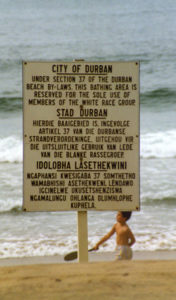
IV – Latent Racism
Speaking personally, as always, my own racism feels like a virus. I survived the initial infection but now I’m a lifelong carrier. For the most part, my virus is latent but it’s subject to flare up when my immune system is low and my tolerance levels dip. Usually, my virus manifests in benign ways but that doesn’t make it less racist.
For example, whenever I see a multi-racial couple holding hands on the street, I notice that. My attitude may be ‘That’s nice’ but it is racism nonetheless.
Here’s a more severe example. I walk my dogs in the park every day. It’s my favourite place in the city – a common ground where people from all walks of life can relax and socialise. I firmly believe that every community deserves a clean, green park to improve their quality of life, and I lament the fact that many new settlements are being implemented without these facilities. But I digress…
Sometimes, while I’m chasing after my little bastards in the park, I see a black person sitting on a bench, reading a book or newspaper. And try as I might, a tiny, reflexive thought rises unbidden in my mind. Something along the lines of ‘Look at that. Who says black people don’t read?’. The answer is me. I think that black people don’t read. Otherwise I wouldn’t be taken aback (no matter how slightly).
The same goes for when I see a black taxi driver doing something stupid or inconsiderate. I try to dismiss the offender as something generic, like an arsehole – because everyone has one of those, but there’s that little voice deep in the shameful recesses of my mind telling me that ‘they’ are savages with no respect for law and order.
‘They’ is a very, very dangerous word.
V – Genetics and Race
This part may seem obvious – especially for readers in ‘enlightened’ countries who believe they have outgrown racism – but I think the following points bear repeating so that there is no doubt…
Racism is essentially a nonsensical ideology, seeking to introduce differences where there are none. Biologically speaking, we are all the same species: Homo sapiens – translated as ‘wise or thinking man’ (all evidence to the contrary). That means that our mechanics are identical. No matter how different we look, sound or act, there is nothing to indicate that one race is objectively better or worse than another.
But racist ideologies consistently seek to negate anything that smacks of science. Instead, racism is driven by emotion, disempowerment, anger, fear, expediency and resentment.
Thus, for the hard-core racist, there are several distinct races and each one is fundamentally different from the others (these races are sometimes codified as African, Asian, European, Native American, and Oceanian). Whites are obviously the best hence you get the obsession with purity of the blood and other idiotic attempts to selectively breed a master race (as per Eugenics, Hitler and other forms of ethnic cleansing – although this can also apply to tribal identities within racial groups as well).
But, despite what some commentators may claim, there is no genetic evidence whatsoever to suggest that any one race is inherently superior to another. Not in terms of intelligence, strength, fertility, culinary ability or even a sense of rhythm. In fact, studies have shown that there is more genetic diversity within the black races than there is between black and white, and white people may have more in common with Asians than with other members of their own race.
The inherent equality of the races is therefore something that I understand and embrace. And yet, the concept of genetic superiority lingers in the air, feeding my latent racism like poison gas in a chamber.
VI – Some of my best friends are racist
Now comes the part where I break trust with my fellow racists and come clean about some things that white people sometimes say to each other when no-one’s looking. Once again, many readers may say that they don’t know anyone who would even think things like this let alone express them explicitly, but I posit that many of us are more racist than we realise – even if it’s within the confines of our own subconscious.
For example, I was recently having a discussion with a good friend about this subject and he said, without irony, that he isn’t racist because he knows some intelligent black people. But as a group, he continued, ‘they’ are stupid, inconsiderate, corrupt, etc. The fact that this is the dictionary definition of racism seemed to surprise him.
And he’s not alone. Without pointing fingers at anyone in particular, many of my family and friends are latent racists without fully acknowledging that they may be so. It could be the casual use of a mild racial epithet, a pejorative accent, or a throwaway comment about ‘them’, but a lot of white people subconsciously embody the genetic superiority paradigm without fully realising it.
I recall another conversation with an educated acquaintance (a radiographer) during which I tried to explain why white people should never, ever refer to black people as ‘monkeys’ or ‘apes’ or ‘baboons’. This was following a social uproar over a Facebook post in which a woman compared black people to something simian.
Simply put, I tried to convey how black people across the ages have been called primitive, savage or animalistic. In other words, that they exist further down the evolutionary scale and are thus closer to bloody monkeys than the glorious European races.
After listening patiently, her response was ‘but they are like monkeys’, as if that settled the matter. As further proof, she offered the ‘fact’ that black people have thicker skulls than whites. Besides, she had seen one driving with his hand hanging out the window and he looked just like a monkey. I quickly realised that it was pointless trying to continue with the conversation. It just wasn’t worth it to bang my head against a wall of stupid.
Another time, an acquaintance asked ‘what’s so bad about calling them monkeys anyway? I call my kids monkeys all the time’. Once again, I tried to clarify that there’s a history of using ‘monkeys’ as a specific racial insult but he wasn’t buying it. It was just political correctness gone mad, he said, and now we have to be afraid of everything we say.
This is, of course, rubbish. Free speech is central to our understanding of democracy, but it has its limits – specifically when it tips over into Hate Speech. South Africa has quite clear guidelines on what constitutes hate speech. In fact, we are one of the few countries in the world that has made racism a potentially criminal offence and there are currently several people in prison for their public racism (often shared on social media or filmed by bystanders and then exposed).
VII – Criminally Racist
Consider the following story: Recently, a leaked WhatsApp video message showed this guy standing on a beach in Greece and blissfully declaring that what made it so special is that there ‘wasn’t a ka**ir in sight’. For any international readers, ka**ir’ is an awful word for black people that was widely used during Apartheid – the term is so toxic I refuse to type it out in full. Think the N-word but even worse.
Obviously, the video went viral and the uproar was immediate. People were outraged and rightfully so. And then it spiralled. The man’s extended family was targeted, his father’s business had to shut down, as did his brother’s restaurant. The perpetrator still hasn’t come back from his holiday in Greece and likely never will.
The apparent explanation for his statement was that he had recently been the victim of an extremely callous robbery at the hands of black people while out hiking, high in the mountains. This doesn’t hold any water whatsoever. It’s the same reasoning that Anti-Semites use: a Jewish accountant ripped me off, therefore all Jews are crooks.
So, while I sympathise with the guy’s potentially innocent family members and those hapless workers who are out of job because of this idiot’s utterances, I can’t really say that people are over-reacting. It was a hateful statement and he should have had the sense to keep it hidden inside his head. The fact that he shared to a group of friends on WhatsApp only indicates that he thought he would find a receptive audience for his ‘hilarious’ social commentary. In other words, fuck that guy.
It does get tricky when it comes to humour, though. Does a heightened awareness of racism mean that we can’t make jokes anymore? After all, most jokes are at the expense of one group or another. Does that mean we can’t poke fun and have to watch everything we say in case we cause offence?
Well, it’s a complicated question (especially since I often make inappropriate jokes to get a laugh). In my opinion, though, I think it’s quite simple. Firstly, if it’s a joke about yourself or a group directly affiliated with your identity, you should be OK. Secondly, and more importantly, it’s all about the intention. If the joke is good-humoured and equitable, it should be fine (unless there’s someone looking to get offended). If the joke is mean-spirited and negative, you might be on shaky ground.
My advice: just ask yourself if you’d be comfortable making the joke in the presence of someone who is part of the group that it’s about. If you think twice, it might just be best to skip it altogether.
VIII – Can Black People Be Racist?
And that brings up another point. Is racism only white vs. black, or does it have a wider definition? I would argue that racism can be used as a blanket term for when a person makes a discriminatory statement or action against another group based on a racial, gender, ethnic, religious, sexual or cultural disparity. Whether you mistrust the Italians, or Greeks, or Blacks, or Asians, or Jews, or Women, or Homosexuals, or Transgender people, it’s all smacks of racism to me.
So, even though we have specialised words for each of the many forms that discrimination can take, it’s important to remember that the principles of superiority and entitlement that lie behind race-based discrimination are the same as those that lie behind misogyny, homophobia, anti-Semitism, Islamophobia, etc. Equality is a powerful concept that cannot be applied selectively – it’s all or nothing.
Furthermore, despite what some of our more populist leaders may say, of course black people can be racist. No matter how gruelling one’s cultural history and/or personal experiences may be, it is quite possible to be both a racist and a victim of racism. And being one does not make it OK to be the other. Racism is, ironically, something that transcends race.
So, for an oppressed race to turn around and embrace or condone the oppression of another is galling, but self-awareness is not our species’ strong suit. What’s even more infuriating is when formerly oppressed people co-opt racism for their own means. In South Africa, this happens quite often. For example, you’ll often hear the biggest crooks in our government cry ‘racist plot’ whenever they are accused of doing something illegal.
Just listen to our scrappy politicians argue about the scourge of corruption and ‘state-capture’ that has come to define the last 10 years of the ANC’s dismal Jacob Zuma-led government. Every treasonous accusation (and there are many) is dismissed by the kleptocracy as being a plot by ‘white monopoly capital’ and each negative news report is dismissed as being a ploy by ‘white-controlled media interests’ – despite the increasingly obvious legal evidence that shows how a network of cronies, which included almost the entire upper-management of our country, were united in a brazen attempt to loot the state for as much as they could.
And their defence? It’s obviously a conspiracy by white people to discredit black people who only want to advance themselves. It’s a neat trick that may distract those who are inclined to believe such assertions but it’s also mendacious bullshit and should not be countenanced.
IX – Confronting Racism
So, finally, now I’ve acknowledged that I carry the Racism virus, what can I do about it?
Well, it’s a personal question and I don’t presume to speak for anyone other than myself. So, personally, I try to be aware of the various prejudices and racist overtones that are swimming around in my brain. I endeavour to keep my discriminatory impulses in check, no matter how angry I am at the behaviour of an individual. Because the actions of one do not reflect the actions of all. Like I said previously, ‘They’ is a very dangerous word.
Instead, we should only be judged on our words and actions as individuals, not unilaterally lumped into a group that has been given labels and characteristics by external forces based on little more than partisan anecdotes.
I’ve also decided to be less complicit in racism. While none of my friends or family are overt racists, there is still a lot of casual racism flying around. Just listen and you’ll start to hear it…
And what’s the best course of action to take when you do catch a whiff of residual racism? Well, sometimes I speak up, sometimes I don’t. It depends on the circumstances – who’s there, what was said, is it worth it, etc. After all, I don’t want to be ‘that guy’ who constantly harangues people about their racist attitudes, and I similarly don’t want to be the person who makes every conversation political and tense – especially since I am far from blameless. Nevertheless, I find myself speaking up more and more often because I can no longer just sit back and leave discrimination (overt and covert) unchallenged.
That is my resolution. Where once etiquette would have dictated that I shut up and play along, I have decided to be less complicit in perpetuating the ingrained superiority complex that has been the hallmark of my race for centuries.
It’s time for the narrative to change and that process starts with me.

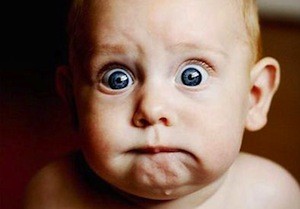 Yassis, I’m depressed about the state of our nation. And that worries me. I’ve always been the one who is upbeat about South Africa (you know the one). I love my country deeply. It is part of my identity, part of my self. I just can’t imagine living anywhere else. And yet…
Yassis, I’m depressed about the state of our nation. And that worries me. I’ve always been the one who is upbeat about South Africa (you know the one). I love my country deeply. It is part of my identity, part of my self. I just can’t imagine living anywhere else. And yet…